What are the best Google Drive alternatives? 7 solutions
In this article, you can find out what makes the Google Cloud application so special, and which other online storage options are a good alternative to Google Drive.
- Free Wildcard SSL for safer data transfers
- Free private registration for more privacy
- Free 2 GB email account
The best Google Drive alternatives compared
| Launched | Server location | Free storage (max.) | Monthy cost for 1 TB / 2TB | |
|---|---|---|---|---|
| Google Drive | 2012 | Global | 15 GB | 2 TB: $9.99 |
| Sync | 2013 | Canada | 5–6 GB | 2 TB: $8.00 |
| Dropbox | 2008 | Global (Option to select server location for business users only) | 2–16 GB | 2 TB: $9.99 |
| Your Secure Cloud | 2014 | Germany | 1 TB: around $55.00 | |
| HiDrive | 2019 | North America and EU | 1 TB: $7.00 2 TB: $20.00 |
|
| OneDrive | 2007 | Global (for Microsoft 365 users in Germany) | 5 GB | 1 TB: $6.99 |
| pCloud | 2013 | USA (Texas), Luxembourg | 10 GB | 2 TB: $9.99 |
| luckycloud | 2017 | Germany | 1 TB: around $35.00 2 TB: around $70.00 |
(Updated: February 2024)
- Store, share, and edit data easily
- Backed up and highly secure
- Sync with all devices
What makes Google Drive special?
Google Drive has been a permanent fixture in the ranks of cloud storage providers for years. On the one hand, this Google service impresses with its inexpensive rates for private and business users. If the generous free storage space of 15 GB is not enough for you, you can increase the capacity of your account to 100 GB for $1.99 a month.
On the other hand, one of Google Drive’s greatest strengths is the fact that it can be seamlessly integrated into a user’s Google account and connected with various other Google apps, such as the office applications from Google Workspace (formerly G Suite), Gmail and Google Photos.
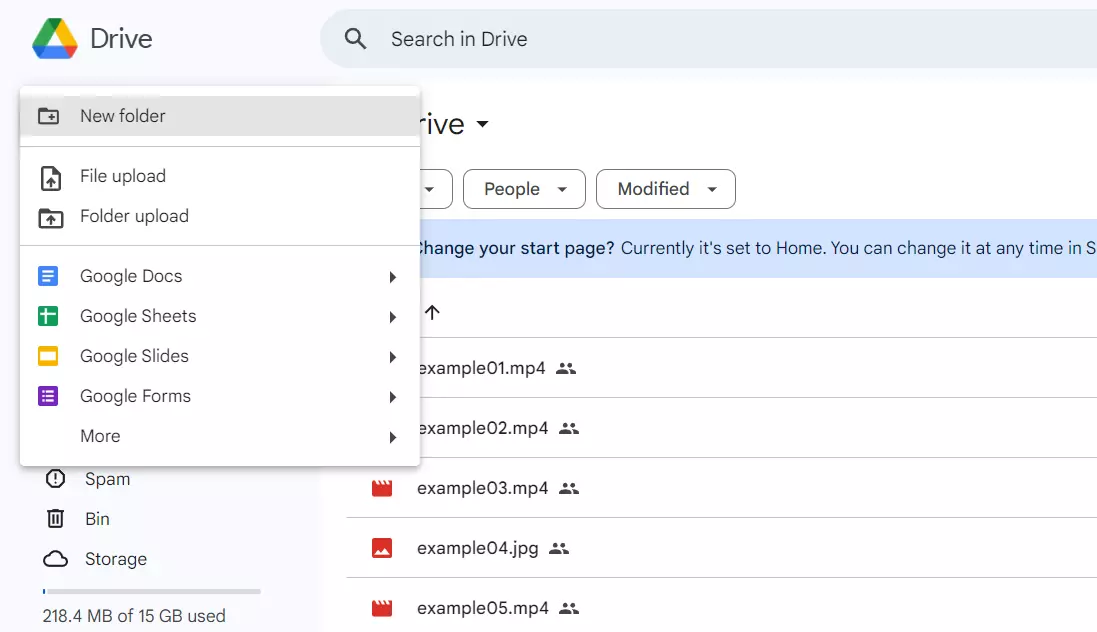
The best Google Drive alternatives in detail
If you don’t want to rely on Google to store your files, there are great alternatives to Google Drive in the cloud storage market. We have compiled the best options for you in the following sections.
Sync (sync.com)
The Google Drive alternative Sync focuses on security and privacy. End-to-end encryption is integrated, which, together with native apps for Windows, macOS, Android and iOS, ensures continuous encryption of stored data. Regardless of the location of the user or company, GDPR compliance is guaranteed at all times. Users can also set up two-factor authentication to additionally protect access to their storage space.
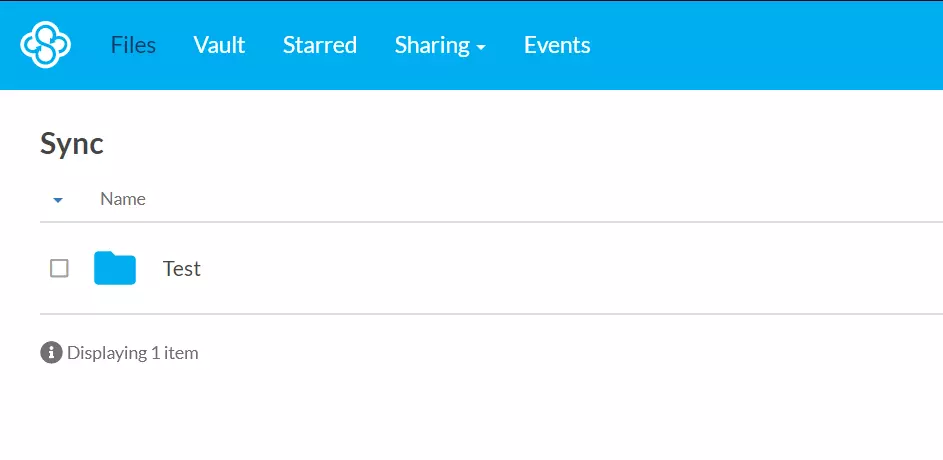
Private users can use Sync free of charge. The Google Drive alternative grants access to 5 GB of storage space by default. Users have the option to add one additional GB of storage. The paid versions provide considerably more storage. For example, you can get 2 TB for $8 per month. If you want to share storage with others, for example, in a company, the Teams plans are the way to go. These start at $6 per month per user.
| Advantages | Disadvantages |
|---|---|
| Very fast upload speed | No desktop client for Linux systems |
| Cost-effective plans for private and business users |
Dropbox
Dropbox is a cloud storage veteran and definitely deserves a place in our list of Google Drive alternatives. Since its early years, the service has been tailored to synchronizing files between different users. The Dropbox software, for example, makes collaborating on folders a breeze. With Dropbox Paper, the classic storage solution now also offers additional features for the digital workplace, such as scheduled meetings and a chat feature.
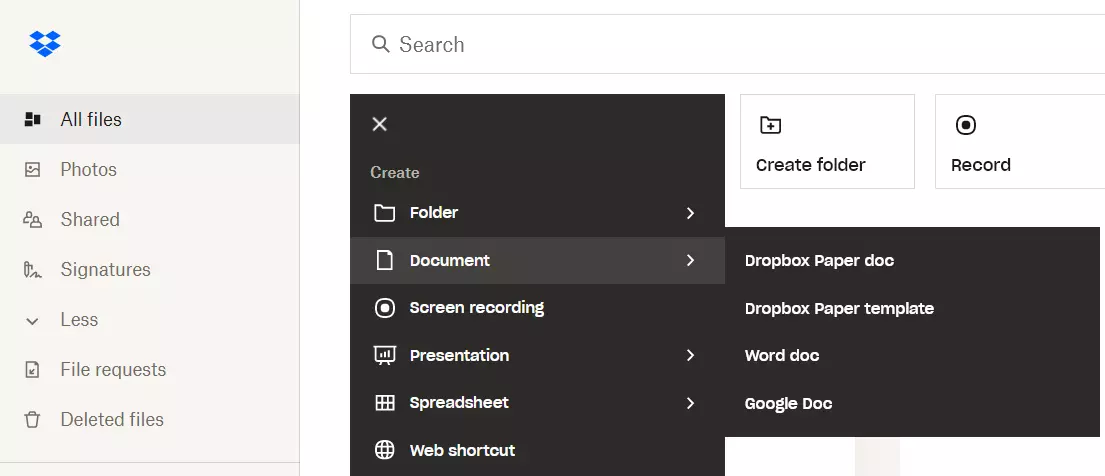
If you start with the free version of Dropbox, you initially only have 2 GB of storage space at your disposal. However, you can increase the amount of storage you have up to 16 GB through a referral reward system. In terms of free storage, Dropbox goes beyond what Google offers giving users more GB of storage when they refer users to Dropbox.
Users can also get more storage by signing up for paid plans. These are available for both individuals (starting at 2 TB for $12 a month) and businesses (starting at 5 TB for $14 per month and user).
You can have a detailed look at these two popular storage solutions in our comparison of Dropbox vs. Google Drive in our Digital Guide.
| Advantages | Disadvantages |
|---|---|
| Team with years of cloud storage experience | Dropbox has dealt with some security gaps in the past |
| Made for sharing, storing and managing files from several users | Very small free storage amount (2GB), starting price for paid plans comparatively high |
Your Secure Cloud
If data security and data protection are important to you when looking for an alternative to Google Drive, Your Secure Cloud might be the right option for you. The cloud service from the German-based company Your Secure Cloud promises maximum protection for your data.
The company not only has its servers located in Germany (ISO-27001 certified), it also uses intelligent end-to-end encryption based on an SSL/TLS certificate from Switzerland. Data is encrypted on the client side (AES-256) as well as on the server at all times. You can access your data using a simple web interface or with desktop clients (Windows, macOS and Linux). Your Secure Cloud also has mobile apps for iOS and Android.
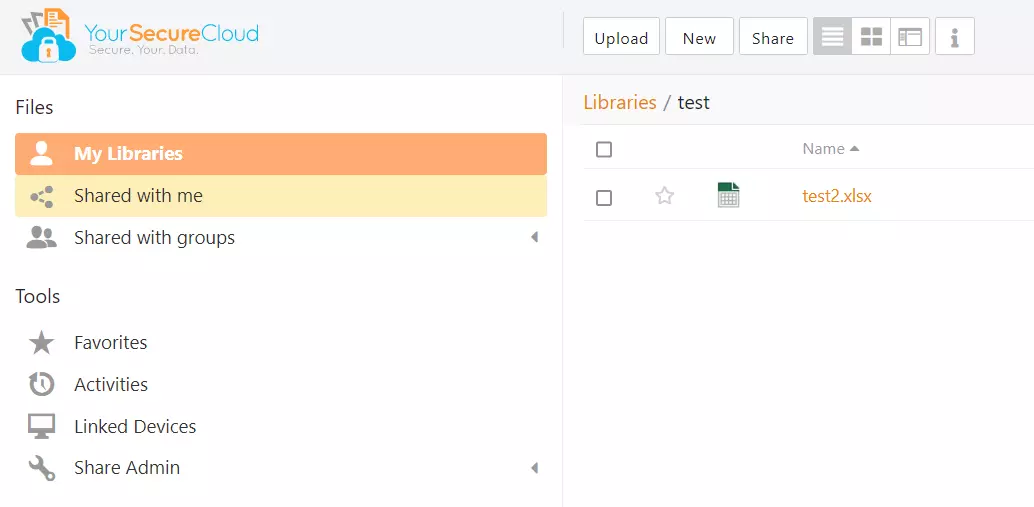
You can test the cloud service Your Secure Cloud as an alternative to Google Drive for 14 days. After that, however, you have to choose one of the paid plans in order to continue using the service.
Private users can choose from plans that offer between 10 GB and 1 TB (from around $2.70 to $55.00 per month). For business customers, the company offers three different options: the Business plan (50 GB for around $4.50 per month and user), the Advanced plan (100 GB for around $9.00 per month and user) and custom plans.
| Advantages | Disadvantages |
|---|---|
| Server location and company headquarters in Germany | No free version available |
| Customized branding and support for companies | Comparably expensive for private users |
HiDrive
IONOS offers an interesting alternative to Google Drive with HiDrive, which, among other things, is defined by its server location in Germany. HiDrive also has other server locations as well.
AES-256 encryption during data transfer, two-factor authentication and fully automatic backups round off the comprehensive security package offered by HiDrive. As is typical for the industry, users can access their data via a cross-platform web application or using a client app (Windows, Linux, Android, iOS). If you want to access your storage space in a team, you can use the user administration to individually determine which users have which rights.
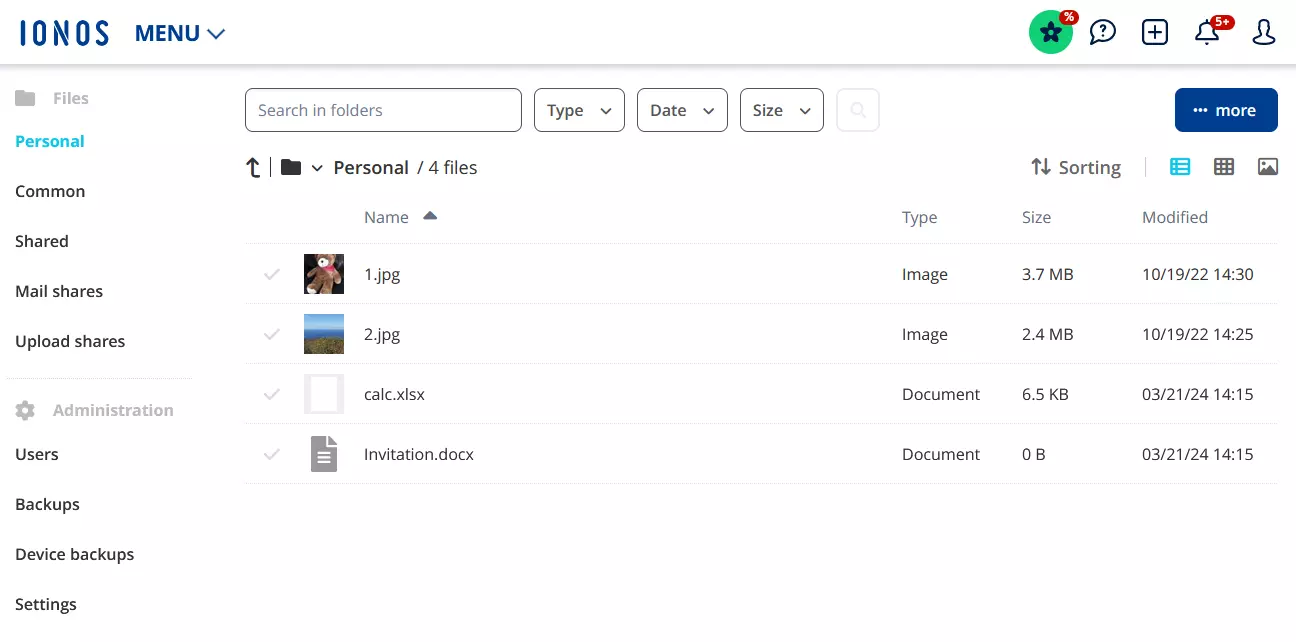
Experience the benefits of HiDrive with a cost-effective, entry-level plan that you can cancel at any time!
HiDrive storage plans are aimed at both private individuals and companies. Unlike many other Google Drive alternatives, there isn’t a free version available. However, those looking for online storage for personal use will still get their money’s worth with the Basic offer (100 GB) for $1.50 per month or the Essential plan (250 GB) for $3 per month. The latter option even grants up to three users access to the storage space. Business plans are also available and provide a much higher storage limit (from 1 TB) for a larger number of users.
| Advantages | Disadvantages |
|---|---|
| Server location and company headquarters in Germany | No free version available |
| Very user-friendly (also in terms of shared usage) |
OneDrive
OneDrive has been one of the main cloud storage options for years as well as one of the most popular Google Drive alternatives worldwide. The direct link to Office applications like Word, Excel and PowerPoint also plays a critical role in its popularity. So, if you work with the Microsoft suite for private or business purposes, you’ll have a perfectly integrated storage solution at hand with OneDrive.
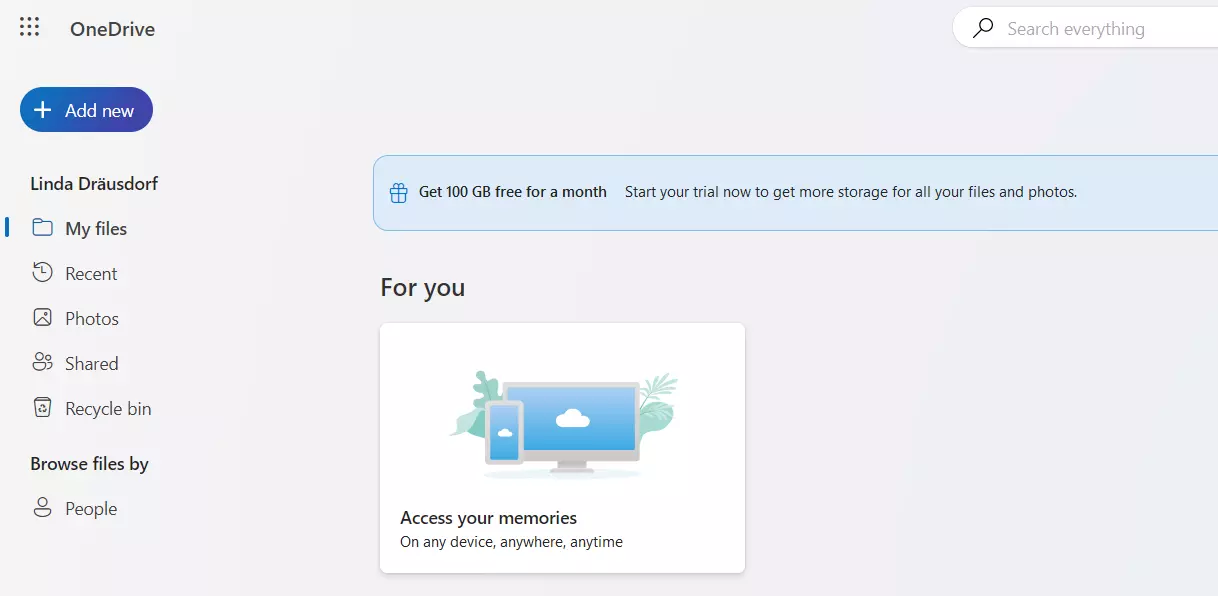
OneDrive can be used as a simple storage solution for home use or as comprehensive cloud storage for companies of any size. Private users can choose between the free edition with 5 GB of storage, individual plans (starting at 100 GB for $1.99 per month) or a complete package, which includes the full Office suite for one to six people (starting at $6.99 per month).
Microsoft’s business plans come with a diverse range of features and the option of 1 TB of storage, 1 TB of storage per employee and an unlimited amount of storage. Business plans start at $6.00 per user/month.
| Advantages | Disadvantages |
|---|---|
| Connects seamlessly with the Microsoft Office suite | Storage capacity of the free edition with 5 GB rather modest |
| Additional security for sensitive data with Personal Vault | International server locations |
pCloud
pCloud considers itself Europe’s most secure cloud storage. Users who opt to use the Swiss company’s services store their files in an EU-compliant way on servers in Luxembourg (Texas is also available as a server location). All data is secured with 256-bit AES encryption during and after transfer. Additional client-side protection can be booked with pCloud Encryption, which encrypts files that are already on your local device. Access is available via a web app in the browser or with native clients for Windows, macOS and Linux, as well as for Android and iOS mobile operating systems.
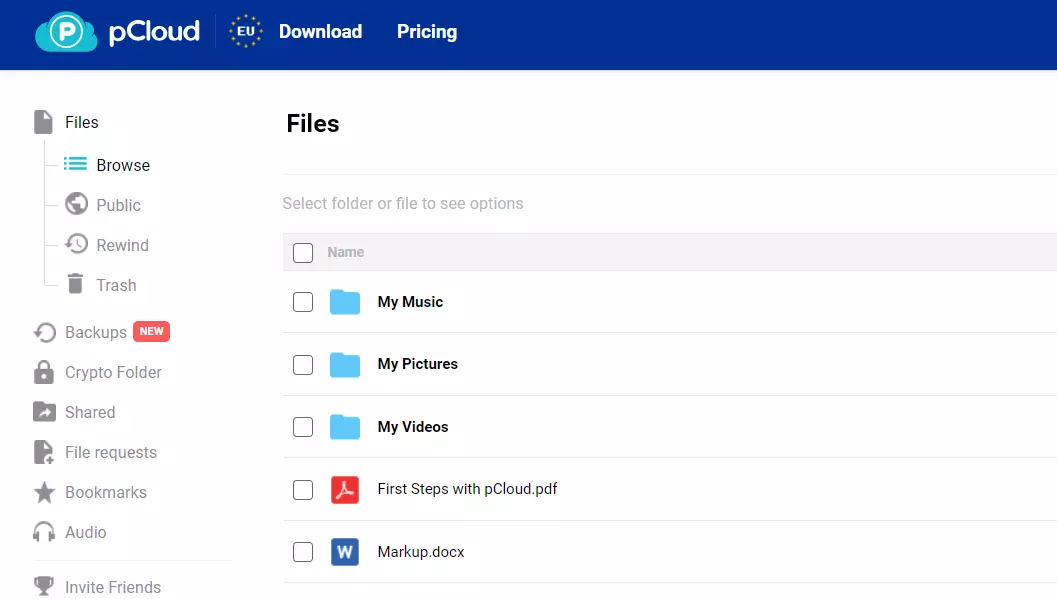
Users of the free pCloud edition start with 4 GB of storage, which they can upgrade to up to 10 GB through various steps such as uploading a file or verifying their email address. If that’s not enough, the Premium (500 GB for $49.99 per year) and Premium Plus (2 TB for $99.99 per year) plans are both available as lifetime solutions.
For companies, the storage service is an excellent alternative to Google Drive. This is because the Business plan (3 users or more) grants access to 1 TB of storage per user and costs around $10 per person per month.
| Advantages | Disadvantages |
|---|---|
| Server located in the EU; Swiss data security | Storage capacity in the standard Business plan with 1 TB not sufficient for every company |
| Client-side encryption possible |
luckycloud
The Google Drive alternative luckycloud has a comprehensive security package. It comes with 256-bit AES encryption, two-factor authentication, and features such as Remote Wipe, which lets you delete files on lost mobile devices using local remote access. ISO-27001-certified, fail-safe data centers in Germany ensure comprehensive data protection (GDPR-compliance).
Users can individually select the storage size and change it if necessary. With the option to increase or decrease the storage capacity as needed, you don’t have to pay for services you aren’t using.

If you are looking for a free alternative to Google Drive, luckycloud isn’t it. After the 14-day free trial ends, you have to pay to use the service. The plans for private users start with 3 GB for around $1.50 per month, but you can adjust the capacities to your individual needs via a slider. For example, you can get 1 TB for around $55 if you pay monthly. With Business and Enterprise plans for teams of up to 10,000 or more users, users can access various additional features such as premium support and user roles.
| Advantages | Disadvantages |
|---|---|
| Server location in Germany | No free basic version available |
| Storage capacity can be customized and scaled at any time | Comparably expensive for private users |
- Store, share, and edit data easily
- Backed up and highly secure
- Sync with all devices

